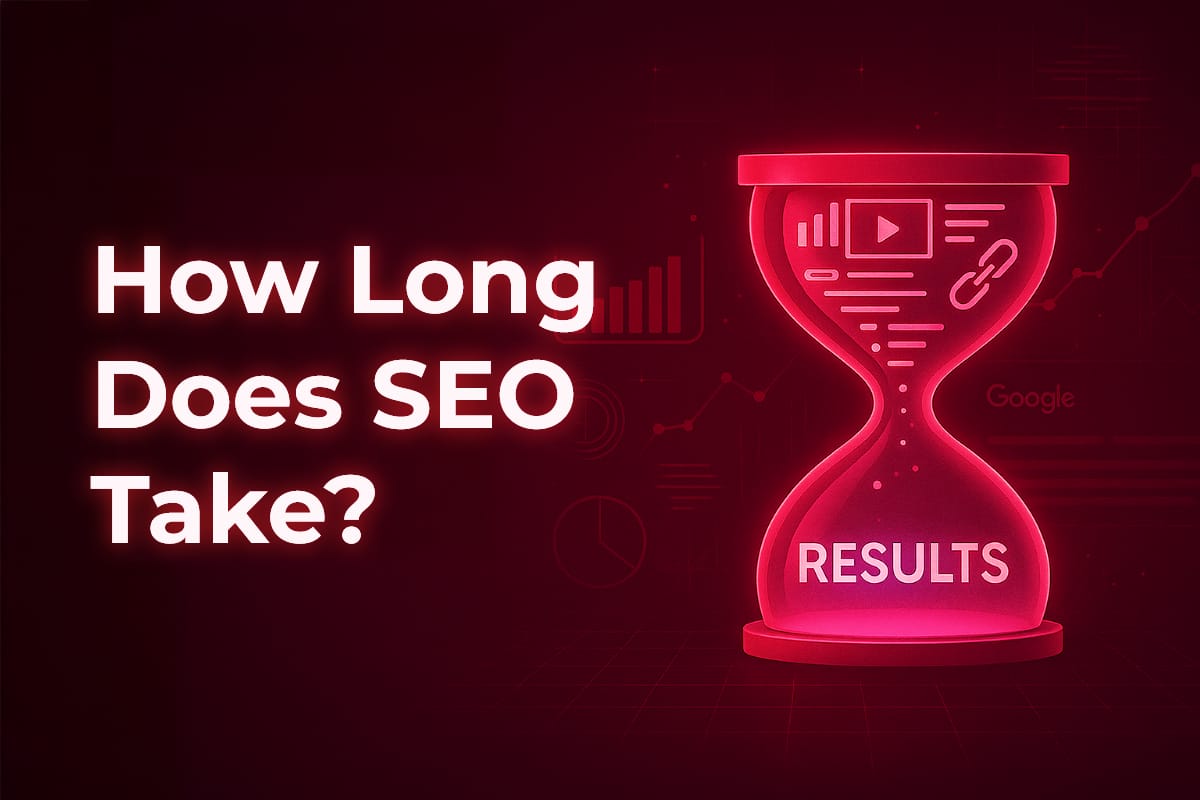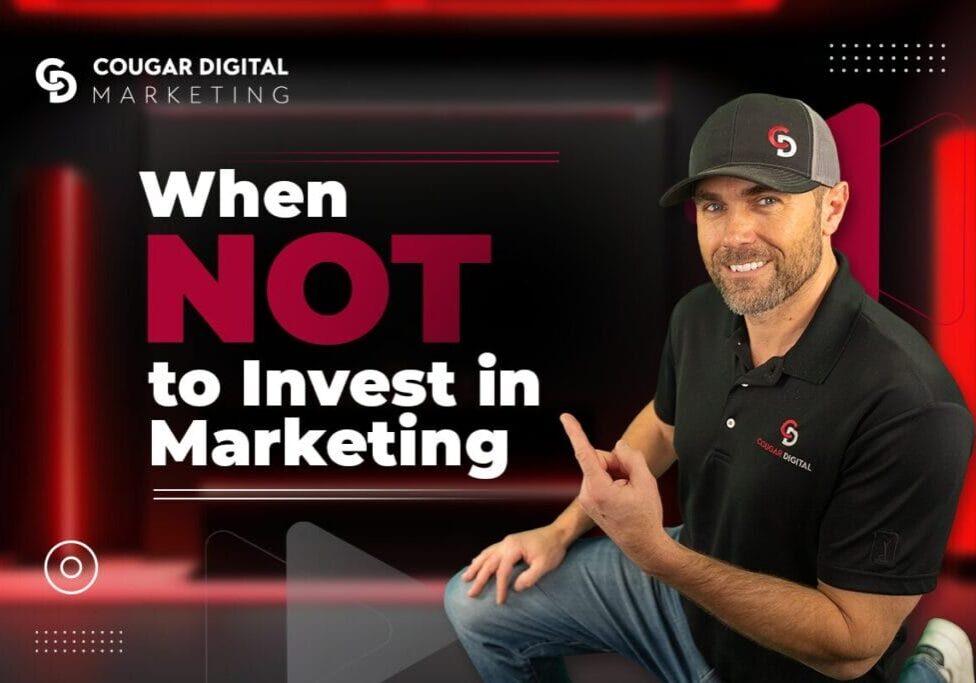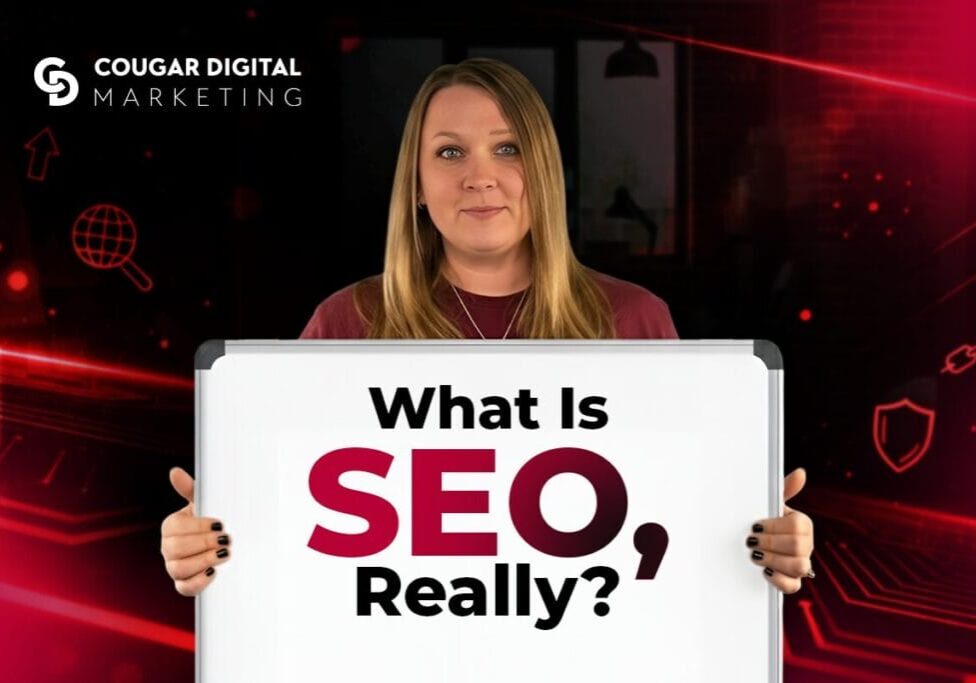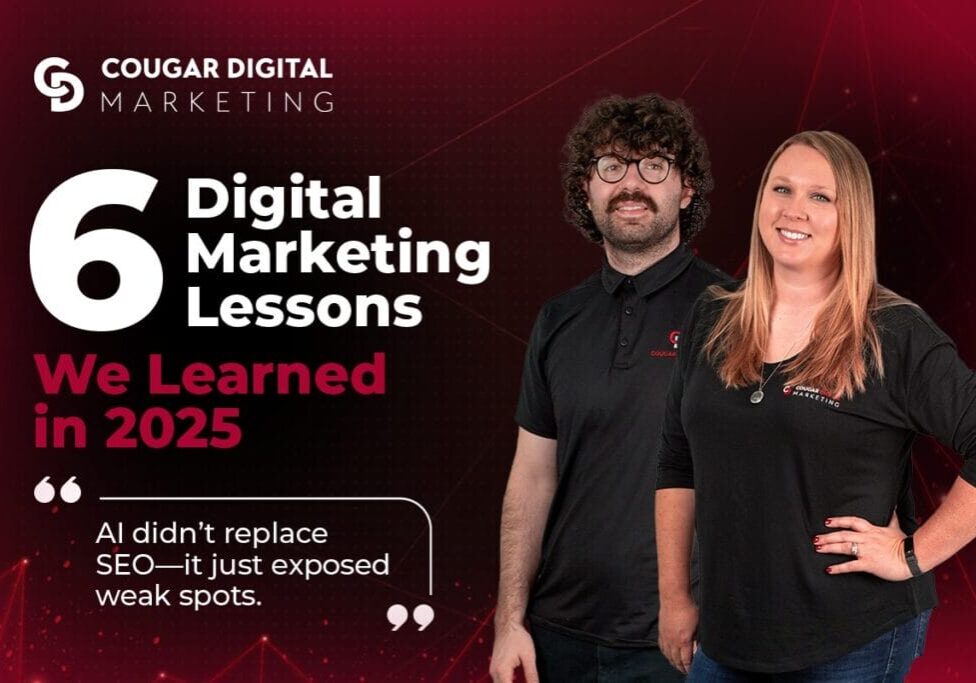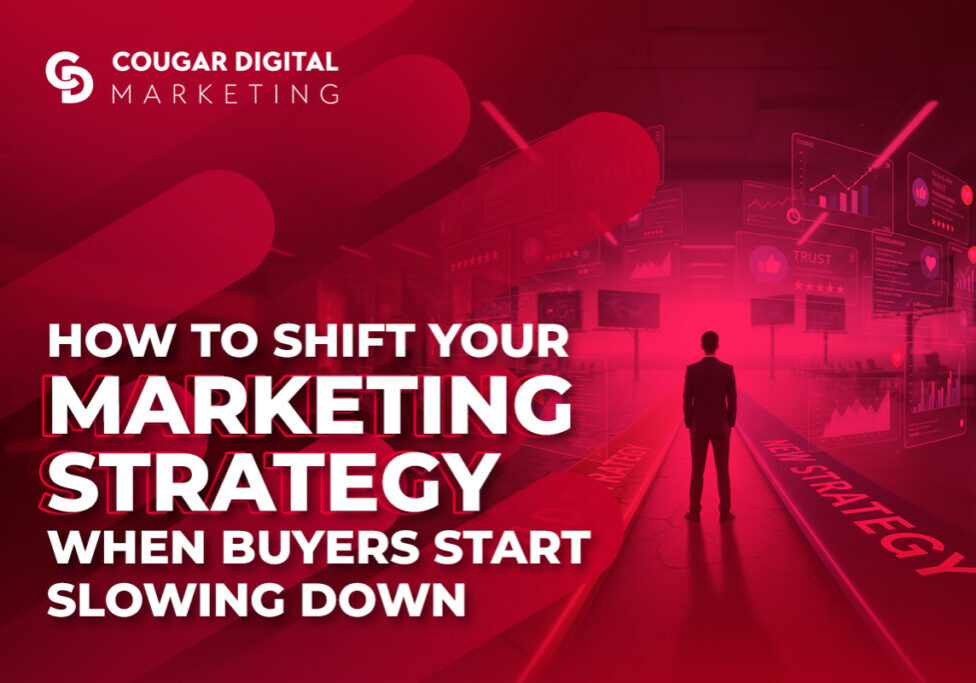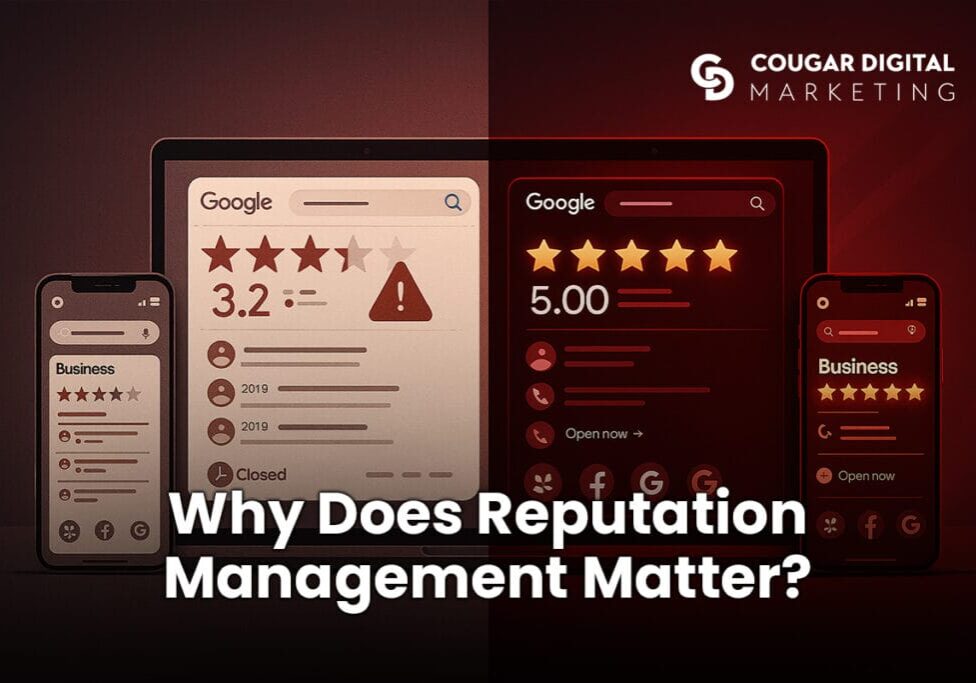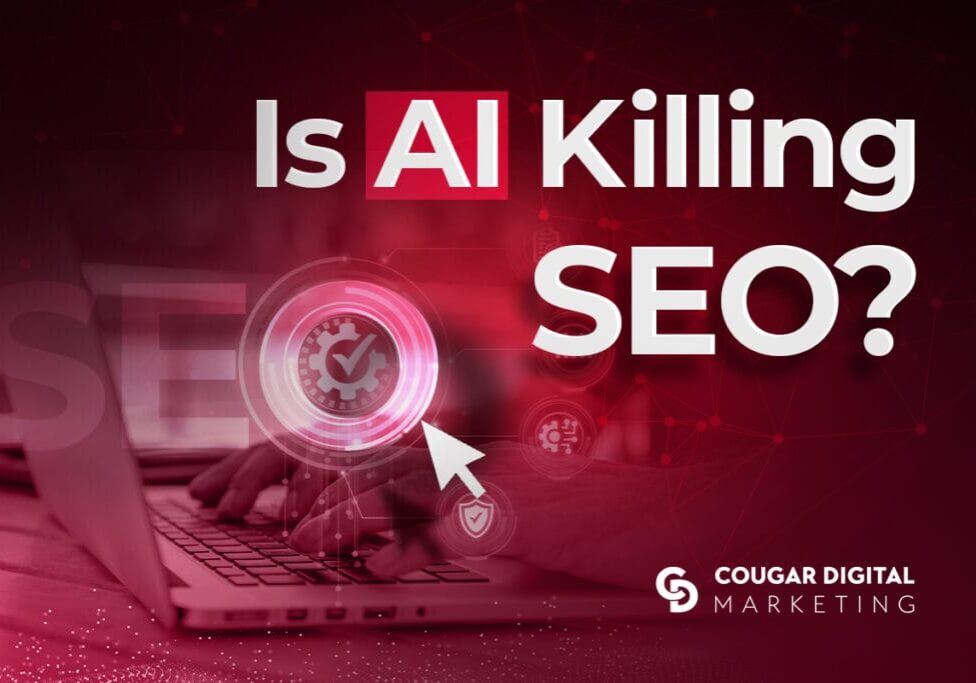If you’re wondering how long SEO really takes to work, you’re not alone. It’s one of the most common questions we hear from business owners—usually after they’ve been promised “quick wins” or sold some magic overnight fix.
Let’s be honest: SEO is a long game. Anyone telling you otherwise is either cutting corners or just hoping you don’t ask too many questions.
Key Takeaways
- Most sites see initial SEO results in 4–6 months; meaningful growth takes 6–12 months.
- New websites take longer to gain traction than established ones.
- Your SEO timeline depends on competition, strategy, site health, and consistency.
- Targeting low-competition keywords and fixing technical issues can speed things up.
- AI is shifting how search works, but clear, helpful content still wins.
So, how long does SEO take?
There’s no one-size-fits-all answer, but here’s a realistic timeline based on experience, data, and how search engines actually work:
- Most websites start seeing initial improvements around 4–6 months
- Significant gains happen after 6–12 months, especially if you’re consistent
- New websites usually need 6–12 months to build authority and traction
- Established websites can see results in as little as 30–90 days
Why does SEO take so long?
Google’s algorithm looks at a lot of things
Search engines factor in over 200 signals—including backlinks, content quality, mobile usability, and how people interact with your site. It takes time for all those signals to add up and push you to the top.
Your content has to be crawled and indexed first
Just because you hit “publish” doesn’t mean Google sees your page right away. Depending on your site structure and authority, it can take days—or weeks—for new content to even show up in the index.
You’re not the only one competing for those rankings
If you’re targeting competitive keywords (think: “personal injury lawyer” or “mortgage lender”), you’re up against big players with massive SEO budgets. Even in smaller markets, consistency is key.
SEO rewards long-term trust
Google wants to show users reliable, high-quality content. That means sites that publish regularly, earn links naturally, and stay technically healthy tend to win—but it doesn’t happen overnight.
Not sure what to spend on marketing?
Find out in 30 seconds.
Plug in your numbers, get a smart budget instantly.
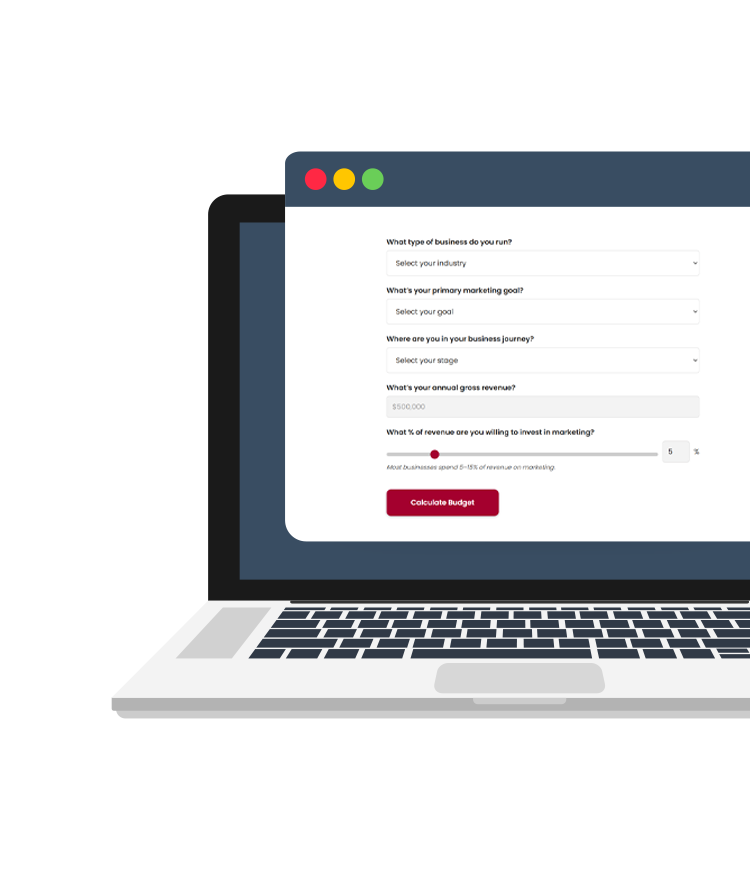
...because 'just throw money at it' isn't a marketing strategy.
What Affects Your SEO Timeline?
Several key factors influence how fast (or slow) you see SEO results. Here’s what really makes the difference:
Website Age and History
If your website is brand new, expect a slower start—usually 6 to 12 months before gaining meaningful traction. This isn’t a penalty; it’s just how Google works. New domains need to build up authority and prove they’re trustworthy before earning visibility.
Established sites, especially those with a healthy backlink profile and good technical foundations, can see improvements within 30 to 90 days—especially when updating existing pages. But if your site has a history of spammy practices, algorithmic penalties, or neglect, you’ll need extra time to clean it up and rebuild trust.
Did you know?
Only 1.74% of new pages rank in the top 10 within a year. And most top-ranking content is 2–5 years old.
Source: Ahrefs
Industry and Keyword Competition
If you’re in a competitive niche—like legal, medical, finance, or national e-commerce—it’s going to take more time and effort to see results. You’re up against brands with years of content, backlinks, and domain authority.
But if your business operates in a more focused niche or serves a specific local area, you’ll often see measurable improvements in 3 to 6 months—especially when targeting long-tail keywords with lower competition.
Strategy and Execution
What you choose to prioritize makes a huge difference in your timeline. For example:
- Going after long-tail, specific keywords → Faster results (1–3 months)
- Chasing broad, high-volume keywords → Slower progress (6–12+ months)
- Ignoring technical issues → Your content may never rank, no matter how good it is
- Posting and ghosting → Inconsistent activity signals to Google that your site isn’t worth watching
The better your plan—and the more disciplined your execution—the faster you’ll see results.
Like this article?
There's more where that came from.
Resources and Investment
SEO success doesn’t just come from good intentions—it comes from consistent work. If you’re trying to spread a small budget across content, on-page SEO, technical fixes, and link building, you’ll likely move slower.
More investment = faster results. That doesn’t mean you have to break the bank—but it does mean your strategy has to be focused and sustained.
Whether you’re doing it yourself or working with an agency, having a clear strategy and avoiding common missteps can save you a ton of time—and keep you from having to backtrack later.
How to speed up your SEO results (without shady shortcuts)
Focus on long-tail keywords
Instead of aiming for “interior design,” try “affordable interior design for small apartments.” Less competition, more specific audience, faster results.
Improve content already ranking on page 2
Use Google Search Console to find keywords where you rank in positions 4–10. Update the content, add internal links, and re-optimize. These tweaks can often bump you to page 1 in a few weeks.
Fix technical issues first
Site speed, mobile usability, crawl errors—these are low-hanging fruit that, when fixed, can help everything else move faster. Tools like PageSpeed Insights and Screaming Frog can help you find what’s broken.
Clean up low-quality content
Google’s Helpful Content System targets sites with too much fluff. If you’ve got old blog posts with little value, rewrite or remove them. Better quality across your site helps everything rank better.
Common SEO timeline mistakes to avoid
- Expecting SEO to work like paid ads—it’s not a faucet you can turn on and off
- Giving up too early
- Changing strategies too often
- Targeting high-difficulty keywords with no authority
- Ignoring technical SEO issues
How to track progress before rankings improve
Traffic isn’t the only signal that things are working. Watch for early signs like:
- Google Search Console: Impressions, average position, and crawl stats
- Google Analytics: Time on page, bounce rate, and goal completions from organic traffic
- Technical audits: Page speed, Core Web Vitals, and mobile usability improvements
Wait—what about AI search results?
We’re also seeing more business owners asking how AI tools like ChatGPT and Google’s AI Overviews are changing SEO timelines. The short version? AI is making content visibility more competitive—and more important than ever to get right.
If you haven’t already, check out our post on how AI is changing SEO. It covers how the way people are searching differently with AI and why traditional SEO and AI-fueled SEO go hand-in-hand.
Final thoughts: Is SEO worth the wait?
Yes—if you’re in it for the long haul.
SEO takes time because it builds something that lasts. Your content gets better. Your website gets stronger. Your audience starts trusting you. And eventually, Google does too.
If you need results right now, consider pairing SEO with a Google Ads campaign. But if you’re playing the long game (and you should be), SEO should be part of your foundation.
Want help building a realistic SEO strategy—and getting results without the runaround? Let’s talk.
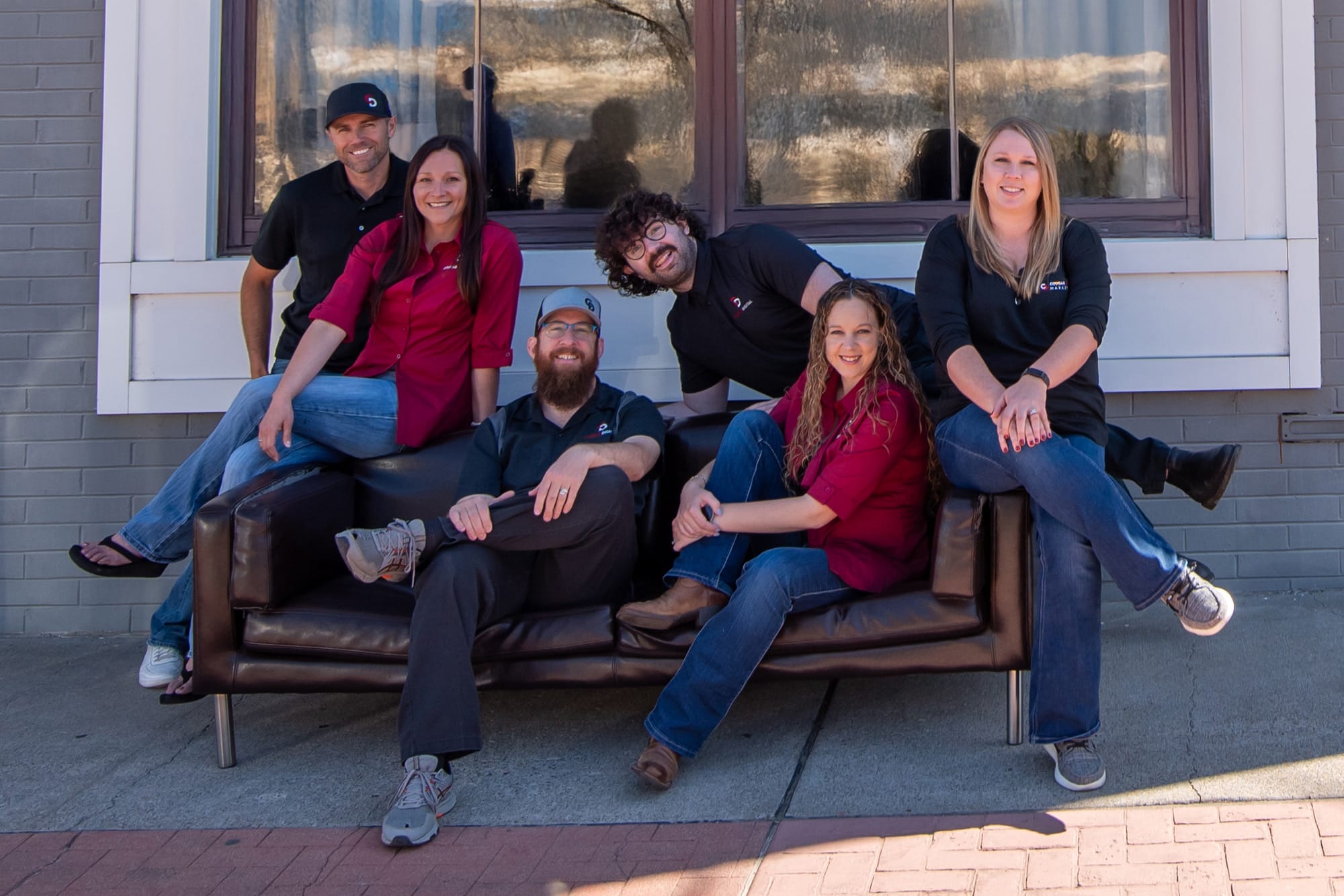
Sign up for a FREE marketing analysis & consultation!
In about 30 minutes, we'll cover your:
-
Business Goals and Challenges
-
Current Marketing Efforts
-
Target Audience and Market Insights
-
Competitor Analysis
-
Customized Growth Opportunities

